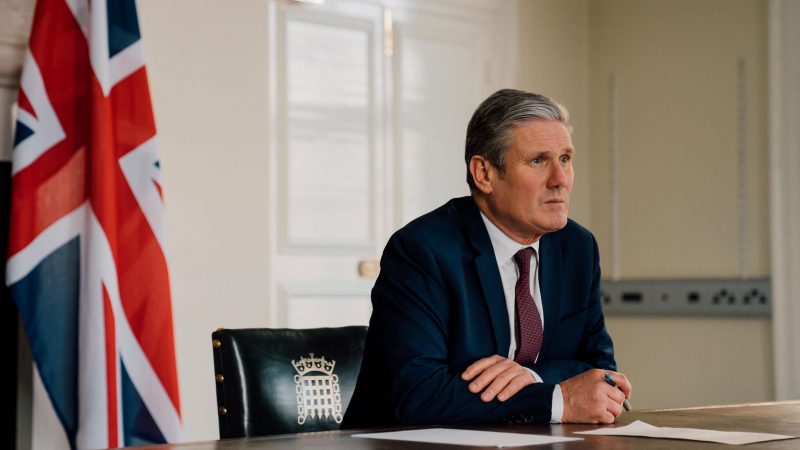
“The opportunity is not there,” Rachel Reeves said yesterday when asked whether she would stand to be Labour leader. “There’s nothing to see here. There’s no leadership contest.” Reeves is tipped as one of the favourites to succeed Starmer in the event that he is fined over ‘beergate’ and has to step down. And – however unlikely it may be that he actually would be fined – it is a reminder of the spectre of the Durham Constabulary investigation hanging over his head. The Shadow Chancellor instead (unsurprisingly) used the Sunday politics shows to focus on how she and her Labour colleagues are “on our way back” and argue that Starmer has turned the party around following the “catastrophic” 2019 general election.
The Labour leader is in a much better position than this time last year – when, after some not-so-convincing local election results, he embarked on a mid-election-results reshuffle that saw Angela Rayner removed as Labour Party chair and national campaign coordinator. Since then, the Labour leadership had a largely successful conference, has come through the local elections unscathed and watched the Conservatives implode after six months of scandalous revelations and flailing around in the cost-of-living crisis that culminated last week in an attempt by Tory backbenchers to oust Boris Johnson.
Polling over the weekend, however, suggests that it is not all plain sailing from here. Despite the many (many) reasons Johnson has given voters to want to kick him out, Opinium research for The Observer suggests they still feel he would make a better Prime Minister than Starmer. 28% of people reported that Johnson would make the better Prime Minister, while 26% opted for the Labour leader. The research comes after Starmer faced some criticism for his performance at Prime Minister’s Questions on Wednesday, after Johnson survived the Conservative confidence vote – and after Rayner suggested that the Labour leader needs to “put some more welly” into his public appearances.
That Starmer has poorer approval ratings than a scandal-ridden Prime Minister should be cause for concern. Nevertheless, as always, the poll that matters is the one on election day. And there is an important day coming – on June 23rd, voters in Wakefield and in Tiverton and Honiton will take part in by-elections. Starmer’s ability to win the so-called ‘Red Wall’ seat of Wakefield, showing that he can win back Labour’s heartlands, will be particularly important. But, with polling suggesting that Labour has a 12-point lead in the seat, the measure of success to which Starmer will be held will not just be whether he wins – but how convincing that win is.
Elsewhere, UNISON is holding its conference in Brighton this week. Professor Rob Ford has written for LabourList this morning, arguing that trade unions should back electoral reform. His piece follows the Labour conference vote last year, which saw a motion for the party to back proportional representation defeated as the unions voted against. Ford writes: “If the two largest trade unions – Unite and UNISON – join Labour’s membership in backing electoral reform, the prospects of committing Labour to changes in the electoral rules at September’s conference would be the brightest in a generation.”
Sign up to LabourList’s morning email for everything Labour, every weekday morning.



More from LabourList
Government announce SEND reform in schools white paper
SPONSORED: ‘Industrial hemp and the challenge of turning Labour’s priorities into practice’
‘A day is a long time in politics, so we need ‘action this day’’